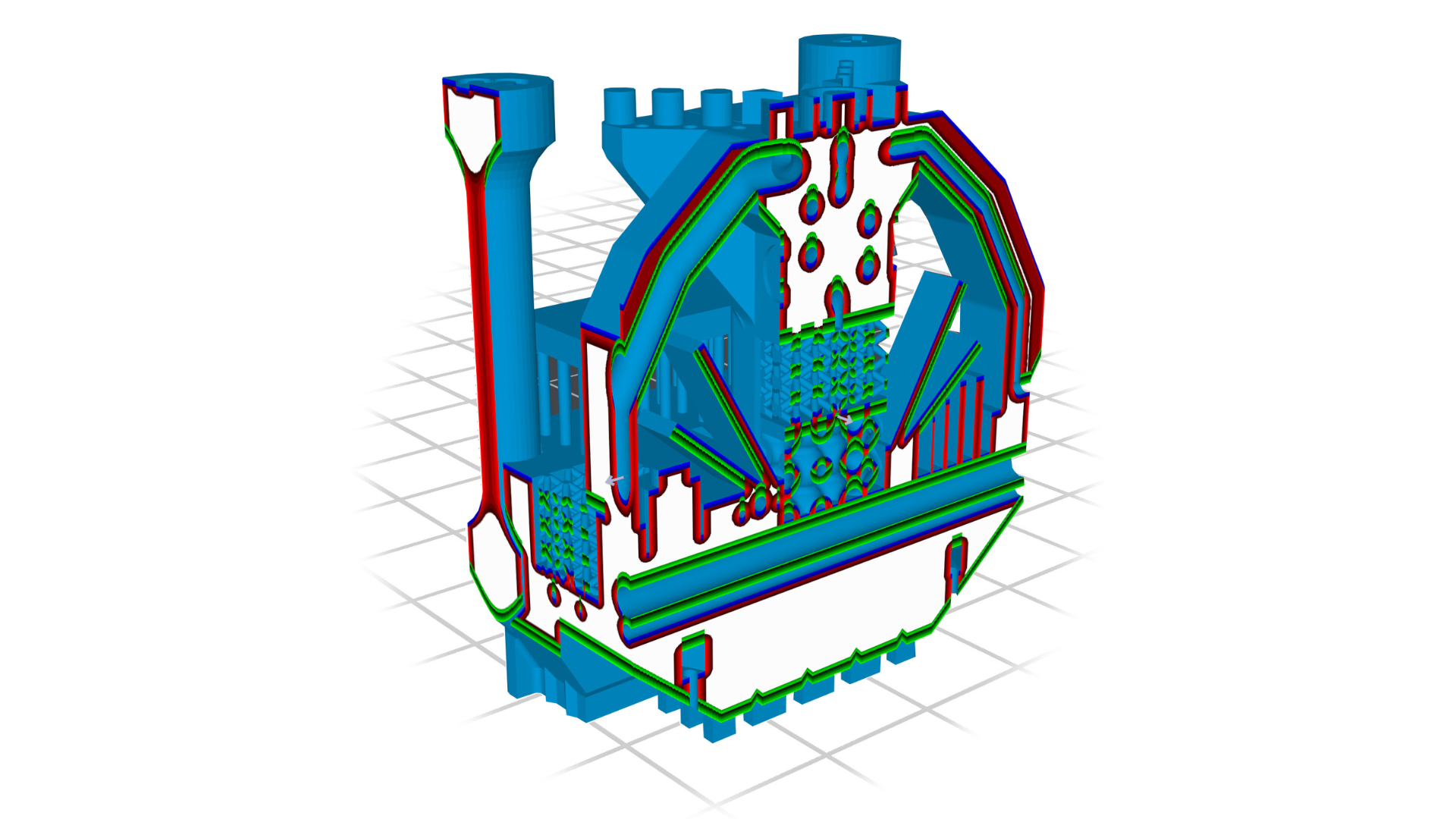
FRANKFURT, Germany/November 15, 2022 — Dyndrite™ released the company’s first end-user application focused on materials and process development for laser powder bed fusion (LPBF) machines. Dyndrite’s new software gives LPBF materials, part/process, and applications engineers unprecedented power and control over their geometry, build specific toolpathing and laser parameters – opening the door to new alloys, build rate strategies, and methods for printing previously unprintable parts.
“After 12 years at a large rocket manufacturer leading the assembly of one of the world’s most advanced AM factories, the Dyndrite engineers and I have been hard at work creating the tool that I wish I had in my prior role,” said Steve Walton, Head of Product, Dyndrite. “The industry previously did not have the software needed to rationally explore the opportunities provided by laser powder bed fusion processes. Users could not efficiently investigate new materials, new build strategies, or even new machine architectures. Dyndrite changes this. This new software provides a flexible new approach, a new data model, innovative and performant APIs, and complete access to toolpath geometry for those who want or need to go further.”
Dyndrite Materials & Process Development for LPBF application was designed for the needs of materials and process innovators pushing the boundaries of laser metal-based AM manufacturing. It takes maximum advantage of the powerful features within the company’s groundbreaking Accelerated Computation Engine (ACE), including working directly with native CAD data, handling massive files, the ability to create shareable build recipes, and improving print quality for various geometric features such as domes, cantilevers, and thin walls.
The Dyndrite LPBF software takes full advantage of the company’s previously announced 3D Volumetric Part Segmentation technology which enables the detection of upskins, downskins, inskins, and part features typically missed by 2.5D layer-by-layer-based solutions. Using this groundbreaking new geometry query method, parts, materials and machines can now be quickly qualified using geometric operations to compensate for challenges associated with process physics. Moreover, 3D Volumetric Segmentation means you never need to manually combine multiple build files again.
Dyndrite’s intrinsic ability to save out “build recipes” opens the door to transparent and shareable toolpathing recipes that unlock the full potential of what’s possible on LPBF machines. Anyone can now make a recipe and share it.
Working with CAD data directly allows for seamless and automated CAD-to-print strategies that shorten print preparation, enable flexible part support strategies and speed DOE experiments.
“Dyndrite’s Toolpathing API unlocked a new dimension of flexibility for our additive manufacturing processes,” said Sam Miller, Director, AM Software, AM automotive manufacturer. “The additional control over our SLM machines enables us to achieve better material performance and cost productivity in a high-quality manufacturing environment.”
“Dyndrite represents the biggest step forward in AM software development for LPBF in the last decade,” continued Steve Walton, Head of Product, Dyndrite. “I’m proud to be a part of the company delivering what the industry has long needed, a toolkit that marries software to hardware and the basis for a powerful, next-generation tool for the emerging AM production market. I’m excited to see the amazing materials and parts the LPBF community produces, and am exceptionally proud of our engineering team and early customers who helped get us to this point.”
The Dyndrite Materials & Process Development for LPBF application is available via the company’s “Early Adopter Program” – a white-glove service offered to a limited number of customers. The LPBF software provides off-the-shelf support for the leading LPBF machines including Aconity3D, AddUp, EOS, Farsoon, Renishaw, SLM Solutions, Trumpf and others.
IMAGE: 3D Volumetric Segmentation, Dyndrite


